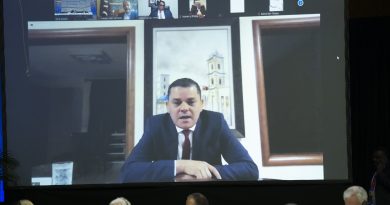Philippine Drug War Prompts Motion to Extend Criminal Liability to Nine Year Olds
Mark McGuire
Staff Writer
In a new move aimed at expanding his drug war, Filipino President Rodrigo Duterte proposed a new law, Euronews reports, allowing children as young as nine years old to be held criminally liable for their actions.
Duterte has thrown his support behind the bill, citing his belief that criminals use children as lookouts and runners, knowing they cannot be charged with a crime. The populist leader stated that children must be “taught responsibility” and that the proposed bill, as The Daily Mail reports, will thwart “a generation of criminals.” According to Fox News, Duterte also stated that he would kill his own son if he caught him using drugs and that children killed in any crossfire, some as young as four, simply constituted “collateral damage.”
The Washington Post reports that the proposal comes as Duterte pledged to continue the controversial anti-drug campaign, which he initially stated would last six months, until the end of his term in 2022. Over 7,600 people have been killed since the crackdown began. According to the Human Rights Watch, 2,500 were killed by police, while vigilantes carried out over 3,600 of the killings. These extrajudicial killings, the leading cause of drug war deaths, have led numerous human rights group figures, including the U.N. High Commissioner for Human Rights, to condemn the government’s policy and the proposed liability law.
The bill’s controversy extends beyond human rights groups, including to Duterte’s cabinet. As Reuters reports, Judy Taguiwalo, the Secretary of the Department of Social Welfare and Development and a member of Duterte’s cabinet, wrote a letter to the House of Representatives advocating against the bill. Taguiwalo cited numerous statistics from her agency pertaining to child drug addictions handled by her agency between 2011 and 2016, which showed that of the roughly 1,000 children “rescued nationwide from illegal drug activity” only 80 were under 15 years old.
The bill’s opponents, to poke holes in Duterte’s claims that children under 15 pose a major unaddressed front in the drug war that must be handled, also used statistics from the Philippines Drug Enforcement Agency to bolster their objections. The agency disclosed that of the roughly 800,000 people who registered with them as drug users and dealers between June and the end of November, about 24,000 were minors, of which only 2,800 were under 15 years old.
Regardless, in the face of increasing opposition, Duterte has pressed onward, vowing to bring the bill before the legislature for a vote by June of this year. Duterte’s Secretary of Foreign Affairs, Perfecto Yasay, will speak at the U.N. throughout March on the drug war, claiming that there have been no human rights violations from the government as they are not controlling any vigilante groups. Yasay, who has emphasized that his country “does not tolerate state-sponsored extrajudicial killings,” will also actively promote the legality of the proposed law and its importance to ensuring his country’s security.
The U.N. however, has been quite clear that the statements made and policies enacted have created an environment that has allowed these vigilante killings to occur, some of which may have had tacit government support. According to The Guardian, UNICEF’s country representative stated that most imprisoned children will probably “be damaged for life.” UNICEF officially took a similar hard line against the liability law, calling the proposal “a great child violation” which is “wrong from every angle.” The organization voiced its opposition to the bill by claiming that imprisoning children of such a young age with adults, especially for long periods, would likely bring about a result that is the opposite of the law’s stated goal. This would mean that children who could have otherwise been educated on drug use and rehabilitated would instead be put in jail, becoming indoctrinated into a culture of criminality through their whole youth, resulting in increased crime over time.


